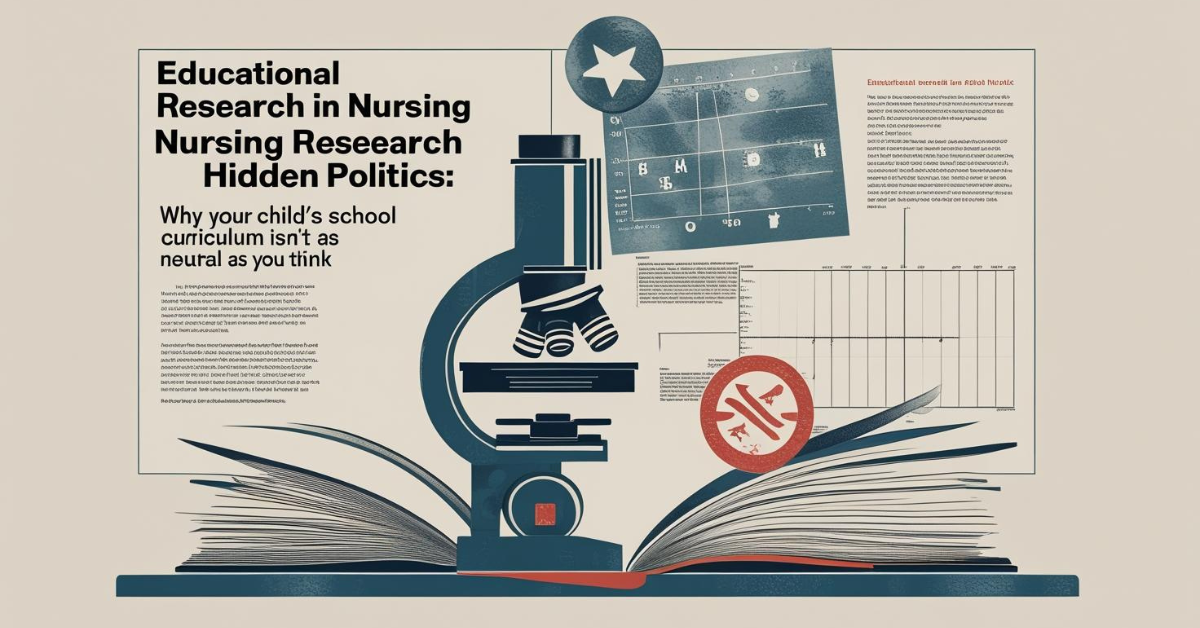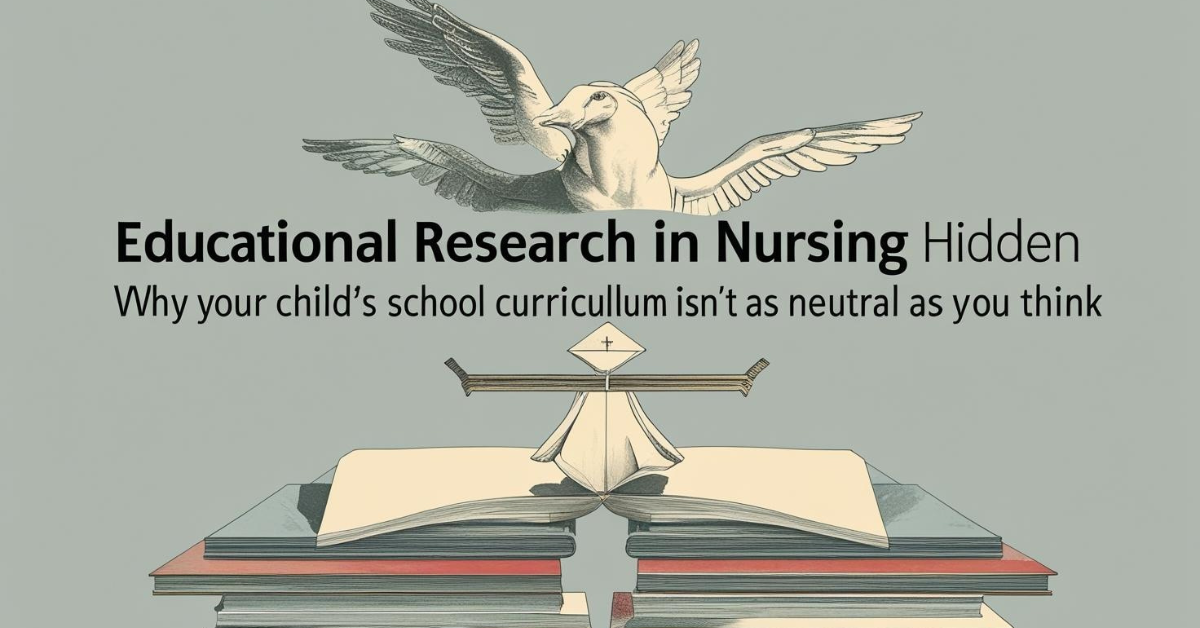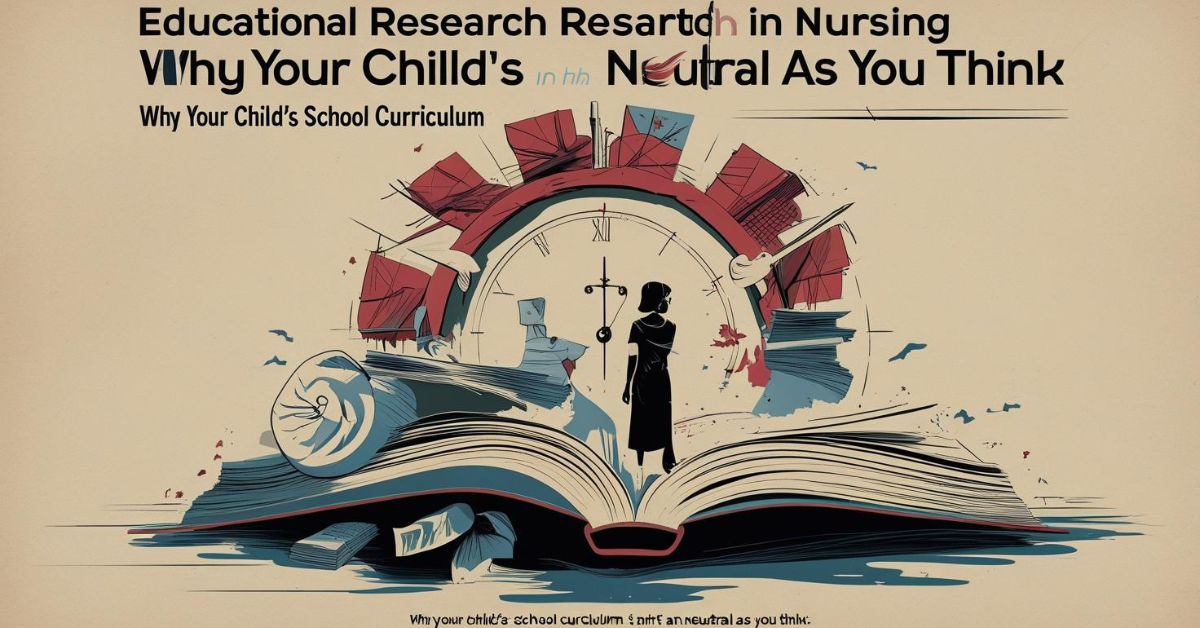Why Educational Research in Nursing and Hidden Politics Why Your Child’s School Curriculum Isn’t as Neutral as You Think. The idea of a hidden curriculum addresses the information and lessons students receive in school that are outside the established written curriculum.
The Educational Research in Nursing and Hidden Politics Why Your Child’s School Curriculum Isn’t as Neutral as You Think
This curriculum can teach them lessons about how they should view themselves and others, and how they should interact with other students and teachers.
Macro-Political Dimensions
The preceding discussion has suggested that there is an inescapable political dimension to educational research, both in the macro- and micro-political senses. In the macro-political sense this manifests itself in funding arrangements, where awards are made provided that the research is ‘policy-related’ (Burgess, 1993)— guiding policy decisions, improving quality in areas of concern identified by policy-makers, facilitating the implementation of policy decisions, evaluating the effects of the implementation of policy.
Burgess notes a shift here from a situation where the researcher specifies the topic of research and towards the sponsor specifying the focus of research. The issue of sponsoring research reaches beyond simply commissioning research towards the dissemination (or not) of research—who will receive or have access to the findings and how the findings will be used and reported.
This, in turn, raises the fundamental issue of who owns and controls data, and who controls the release of research findings. Unfavorable reports might be withheld for a time, suppressed or selectively released! Research can be brought into the service of wider educational purposes—the politics of a local education authority, or indeed the politics of government agencies.
Micro-Political Influences
On a micro-scale Morrison (1993) suggests that research and evaluation are not politically innocent because they involve people. Research is brought into funding decisions in institutions—for example to provide money or to withhold money, to promote policies or to curtail them, to promote people or to reduce their status (Usher and Scott, 1996:177). Micro-politics, Usher and Scott argue, influence the commissioning of research, the kind of field-work and field relations that are possible, funding issues, and the control of dissemination.
Morrison suggests that this is particularly the case in evaluative research, where an evaluation might influence prestige, status, promotion, credibility, or funding. For example, in a school a negative evaluation of one area of the curriculum might attract more funding into that department or it might have the effect of closing down the department and the loss of staff.
Complex Relationship Between Research and Policy
Though research and politics intertwine, the relationships between educational research, politics and policy-making are complex because research designs strive to address a complex social reality (Anderson and Biddle, 1991); a piece of research does not feed simplistically or directly into a specific piece of policy-making. Rather, research generates a range of different types of knowledge—concepts, propositions, explanations, theories, strategies, evidence, methodologies (Caplan, 1991).
These feed subtly and often indirectly into the decision-making process, providing, for example, direct in puts, general guidance, a scientific gloss, orienting perspectives, generalizations and new insights. Basic and applied researches have significant parts to play in this process. The degree of influence exerted by research depends on careful dissemination; too little and its message is ignored, too much and data over load confounds decision-makers and makes them cynical—the syndrome of the boy who cried wolf (Knott and Wildavsky, 1991).
Hence researchers must give more care to utilization by policy-makers (Weiss, 1991a), reduce jargon, provide summaries, and improve links between the two cultures of researchers and policy-makers (Cook, 1991) and, further, to the educational community. Researchers must cultivate ways of influencing policy, particularly when policy makers can simply ignore research findings, commission their own research (Cohen and Garet, 1991) or underfund research into social problems (Coleman, 1991; Thomas, 1991).
Re searchers must recognize their links with the power groups who decide policy. Research utilization takes many forms depending on its location in the process of policy-making, e.g. in research and development, problem solving, interactive and tactical models (Weiss, 1991b). Researchers will have to judge the most appropriate forms of utilization of their research (Alkin, Daillak and White, 1991).
The impact of research on policy-making depends on its degree of consonance with the political agendas of governments (Thomas, 1991) and policy-makers anxious for their own political survival (Cook, 1991) and the promotion of their social programmers. Research is used if it is politically acceptable. That the impact of research on policy is intensely and inescapably political is a truism (Selleck, 1991; Kamin, 1991; Horowitz and Katz, 1991; Wineburg, 1991). Research too easily becomes simply an ‘affirmatory text’ which ‘exonerates the system’ (Wineburg, 1991) and is used by those who seek to hear in it only echoes of their own voices and wishes (Kogan and Atkin, 1991).
Tensions Between Researchers and Policy-Makers
There is a significant tension between re searchers and policy-makers. The two parties have different, and often conflicting, interests, agendas, audiences, time scales, terminology, and concern for topicality (Levin, 1991). These have huge implications for research styles. Policy makers anxious for the quick fix of superficial facts, short-term solutions and simple remedies for complex and generalized social problems (Cartwright, 1991; Cook, 1991)—the Simple Impact model (Biddle and Anderson, 1991; Weiss, 1991a, 1991b)—find positivist methodologies attractive, often debasing the data through illegitimate summary.
Moreover policy makers find much research uncertain in its effects (Kerlinger, 1991; Cohen and Garet, 1991), dealing in a Weltanschauung rather than specifics, and being too complex in its designs and of limited applicability (Finn, 1991). This, reply the researchers, misrepresents the nature of their work (Shavelson and Berliner, 1991) and belies the complex reality which they are trying to investigate (Blalock, 1991). Capturing social complexity and serving political utility can run counter to each other. The issue of the connection between research and politics—power and decision-making—is complex.
Research as Political Act
On another dimension, the notion that research is inherently a political act because it is part of the political processes of society has not been lost on researchers. Usher and Scott (1996:176) argue that positivist research has allowed a traditional conception of society to be preserved relatively unchallenged—the white, male, middle-class researcher—to the relative exclusion of ‘others’ as legitimate knowers.
That this reaches into epistemological debate is evidenced in the issues of who defines the ‘traditions of knowledge’ and the disciplines of knowledge; the social construction of knowledge has to take into account the differential power of groups to define what is worthwhile research knowledge, what constitutes acceptable focuses and methodologies of research and how the findings will be used.
Defining Methods and Methodology
We return to our principal concern, methods and methodology in educational research. By methods, we mean that range of approaches used in educational research to gather data which are to be used as a basis for inference and interpretation, for explanation and prediction. Traditionally, the word refers to those techniques associated with the positivistic model—eliciting responses to predetermined questions, recording measurements, describing phenomena and performing experiments.
For our purposes, we will extend the meaning to include not only the methods of normative research but also those associated with interpretive paradigms—participant observation, role-playing, non-directive interviewing, episodes and accounts. Although methods may also be taken to include the more specific features of the scientific enterprise such as forming concepts and hypotheses, building models and theories, and sampling procedures, we will limit ourselves principally to the more general techniques which researchers use.
If methods refer to techniques and procedures used in the process of data-gathering, the aim of methodology then is, in Kaplan’s words: to describe and analyze these methods, throwing light on their limitations and resources, clarifying their presuppositions and consequences, relating their potentialities to the twilight zone at the frontiers of knowledge. It is to venture generalizations from the success of particular techniques, suggesting new applications, and to unfold the specific bearings of logical and metaphysical principles on concrete problems, suggesting new formulations. (Kaplan, 1973)
In summary, he suggests, the aim of methodology is to help us to understand, in the broadest possible terms, not the products of scientific inquiry but the process itself. We, for our part, will attempt to present normative and interpretive perspectives in a complementary light and will try to lessen the tension that is sometimes generated between them.
Integrating Qualitative and Quantitative Approaches
Merton and Kendall12 express the same sentiment when they say, ‘Social scientists have come to abandon the spurious choice between qualitative and quantitative data: they are concerned rather with that combination of both which makes use of the most valuable features of each. The problem becomes one of determining at which points they should adopt the one, and at which the other, approach’ (Merton and Kendall, 1946).
Defining Educational Research
Our earlier remarks on the nature of research may best be summarized by quoting Mouly’s definitive statement on the subject. He writes, ‘Research is best conceived as the process of arriving at dependable solutions to problems through the planned and systematic collection, analysis, and interpretation of data. It is a most important tool for advancing knowledge, for promoting progress, and for enabling man [sic] to relate more effectively to his environment, to accomplish his purposes, and to resolve his conflicts’ (Mouly, 1978).
The term research itself may take on a range of meanings and thereby be legitimately applied to a variety of contexts from, say, an investigation into the techniques of Dutch painters of the seventeenth century to the problem of finding more efficient means of improving traffic flow in major city centers. For our purposes, however, we will restrict its usages to those activities and undertakings aimed at developing a science of behavior, the word science itself implying both normative and interpretive perspectives.
Accordingly, when we speak of social research, we have in mind the systematic and scholarly application of the principles of a science of behavior to the problems of people within their social contexts and when we use the term educational research, we likewise have in mind the application of these same principles to the problems of teaching and learning within the formal educational framework and to the clarification of issues having direct or indirect bearing on these concepts.
The particular value of scientific research in education is that it will enable educators to develop the kind of sound knowledge base that characterizes other professions and disciplines; and one that will ensure education a maturity and sense of progression it at present lacks.
Planning Educational Research
The Ethical Foundation of Research
Planning educational research The planning of educational research is not an arbitrary matter, the research itself being an inescapably ethical enterprise. The research community and those using the findings of research have a right to expect that research be conducted rigorously, scrupulously and in an ethically defensible manner. All this necessitates careful planning, with thought being given particularly to the con sequences of the research. It is no accident; therefore, that we place the chapter on ethical issues at an early point in the book, for such matters must be a touchstone of acceptable practice.
Haw Establish Research Parameters
In addition, the parameters of the research need to be considered and made explicit by researchers at this initial stage; subsequent chapters in this part indicate how this might be achieved. A new chapter on planning educational research is intended to give novice researchers an over view of, and introduction to, planning issues, the intention being deliberately practical, for educational research has to work.
Core Planning Considerations
In planning research and identifying its parameters, we need to consider the issues of sampling, reliability, and validity at the very outset. We regard these factors as so important that in this edition we have included new chapters to address them. All are complex in nature, for there is no singular or exclusive version of reliability, validity, or what constitutes an acceptable sample.
However, we believe that it is essential for planners to embark on research ‘with their eyes open’ so that they can consider what avenues of approach are open to them. What follows in this part of the book sets out to do just this: to make clear the range of possibilities and interpretations in these respects so that the eventual selection of sampling procedures and versions of reliability and validity will be made on the basis of fitness for purpose rather than caprice.
Expected Outcomes
The intention is that by the end of this part of the book researchers, however inexperienced, will be able to make informed decisions about the parameters and con duct of the research.
Read More:
https://nurseseducator.com/didactic-and-dialectic-teaching-rationale-for-team-based-learning/
https://nurseseducator.com/high-fidelity-simulation-use-in-nursing-education/
First NCLEX Exam Center In Pakistan From Lahore (Mall of Lahore) to the Global Nursing
Categories of Journals: W, X, Y and Z Category Journal In Nursing Education
AI in Healthcare Content Creation: A Double-Edged Sword and Scary
Social Links:
https://www.facebook.com/nurseseducator/
https://www.instagram.com/nurseseducator/
https://www.pinterest.com/NursesEducator/
https://www.linkedin.com/in/nurseseducator/
https://www.researchgate.net/profile/Afza-Lal-Din
https://scholar.google.com/citations?hl=en&user=F0XY9vQAAAAJ


